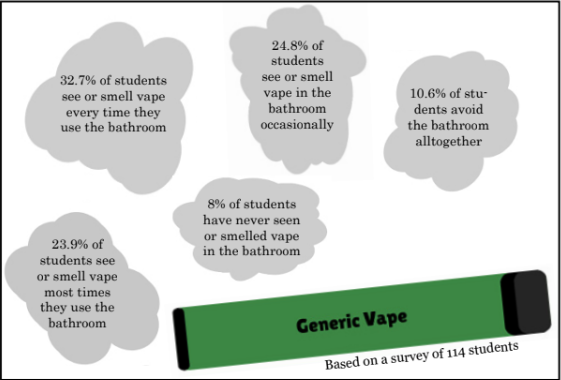According to data collected by the Illinois report card, only 28.8% of students are “proficient,” meaning meeting the standards set by the Every Student Succeeds Act (ESSA), in ELA, 24.4% in math, and 42.8% in science. The majority of students do not meet the standards in any subject.
“So many people complain about their tanking scores but refuse to actually take the easy points. There’s no way people who flunked their way to senior year should be able to take a semester class and get the credit,” Bella Swanson, senior, said.
Hence, lack of effort is a problem but it is not the reason for the low scores.
“More often than not, the real thing that brings down kids’ grades is just laziness,”Antonio Martin, sophomore, said.
However, teachers report much higher grades than the test scores seem to reflect. John Erikson, science teacher, reports an 80% average for his regular classes and Karin Walker, English teacher, reports a B- as well.
Erikson believes that the problem may stem from the allowance of students being able to “retake assessments without learning how to actually solve it but just remembering the answer,” and the number of second chances given.
“Some students just take it in for the moment and never think about it again,” Walker said. “Students need to learn how to study and retain information to succeed in college.”
The question is, why don’t they care?
“The lack of work ethic is reasonably driven by unengaging classes,” Max Ruiz, freshman, said.
The students point to a variety of factors, from unhealthy schedules and boring material to the unique GPA system the school employs.
“Because stress affects my ability to work. It actually feels hard to meet all the requirements,” Adelyn Millerd, sophomore, said.
“We need to create environments where students are held accountable while still staying engaged and enjoying the material,” Jeffery Purdom, social studies teacher, said.
Martin suggests that “a possible way the school can motivate students is by emailing or calling parents when a student’s great average hits a C or D, or by making finals worth more. Instead of 20%, it’s 40%, or even 60%,”.
“We need to fix the GPA,” Erikson said. The school uses the 5.0 GPA scale whereas most schools and colleges will use the 4.0 scale. This can make applying for college confusing when students don’t realize that they aren’t meeting a college’s GPA minimum. This may also lead to students having an inflated idea of their grades and deciding to not try as hard as they could while still in high school.
Despite the graduation percentage being quite good at 92%, some students still have some grievances.
“Everyone deserves to graduate. Plus having to pass English four years in a row to pass isn’t actually that easy,” Connor Ibrahim , junior, said.
But some still feel that the requirements are completely fair.
“Not everyone’s an academic, so it wouldn’t make sense to set a higher standard for a very standard accomplishment,” Joshua Ernst, senior, said.






